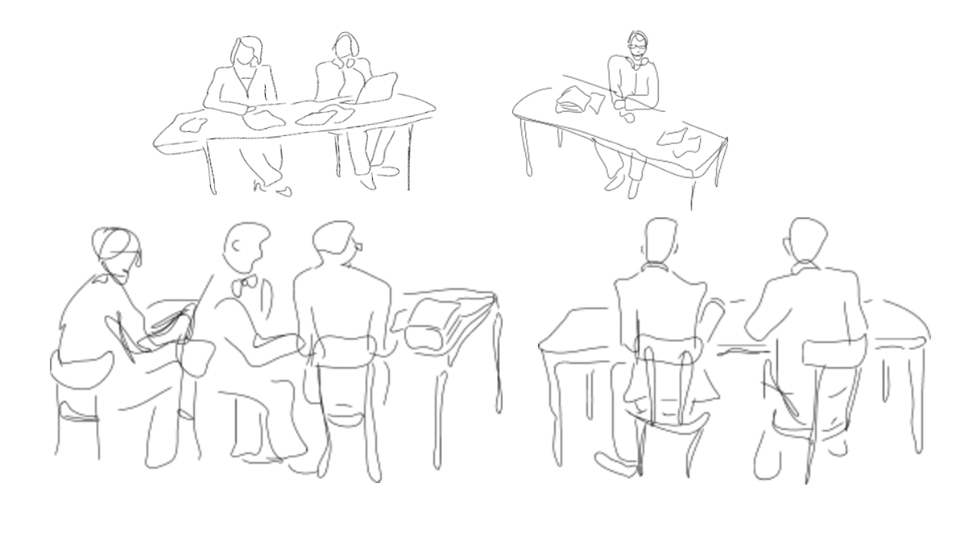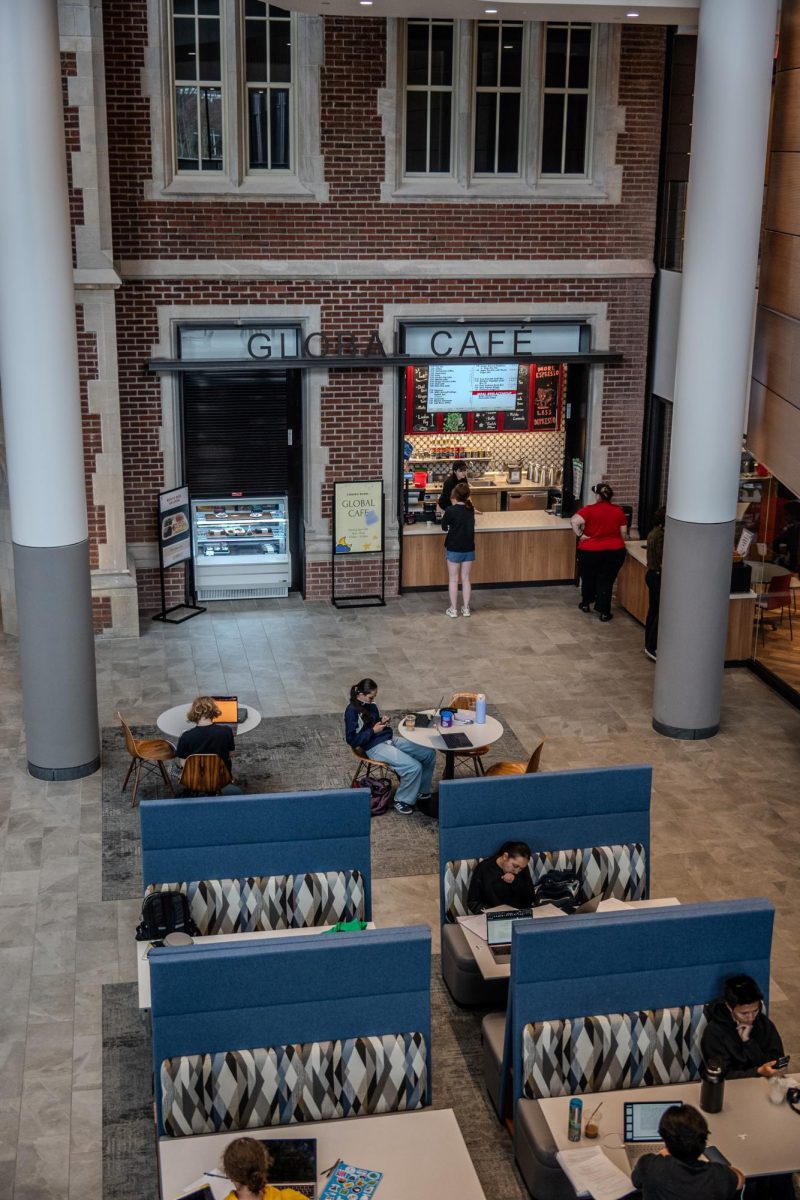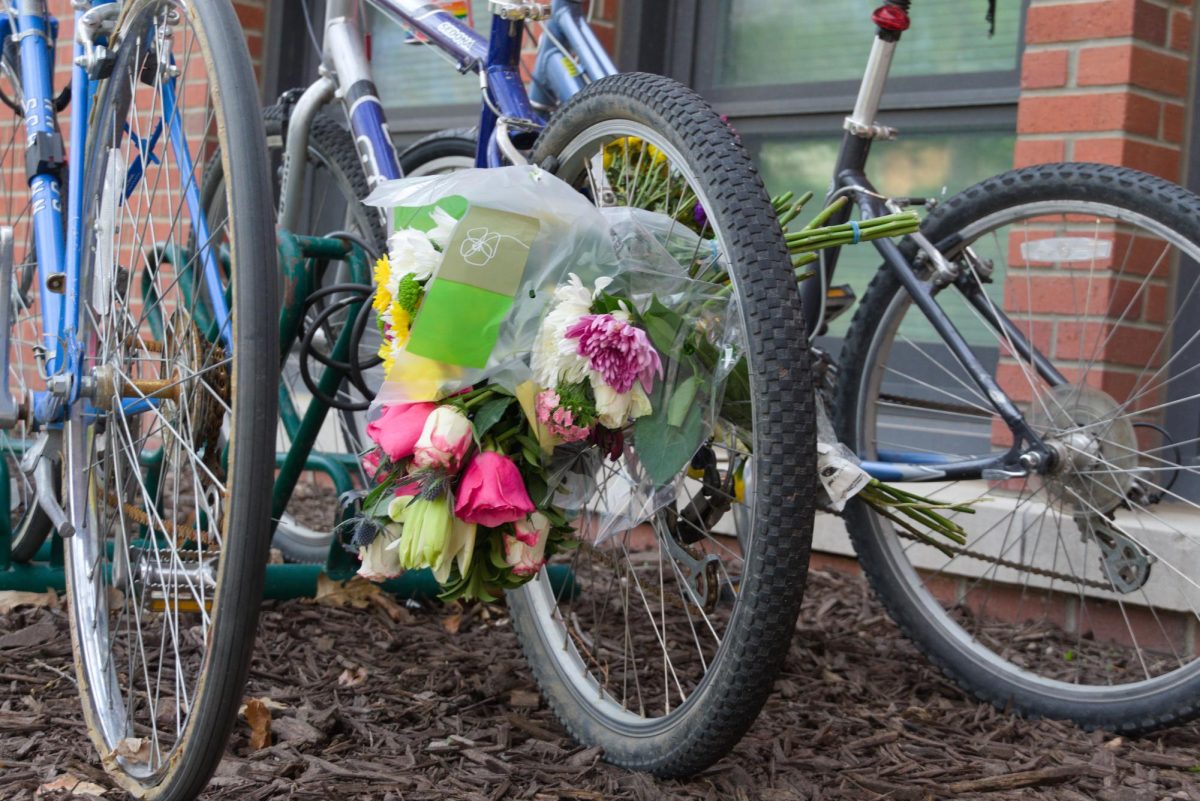By Zoe Fruchter and Chloe Wray
fruchter@grinnell.edu
wraychlo@grinnell.edu
On Wednesday, Oct. 17, the College administration and the Union of Grinnell Student Dining Workers (UGSDW) convened a hearing to determine if UGSDW could hold an election for expansion to cover all student workers.
The hearing occurred at the Grinnell College Golf Course and spanned from 9 a.m. to 5 p.m. and will continue into Thursday beginning again at 9 a.m. Judge Martha Freeberg, an appointee of the National Labor Relations Board (NLRB), presided over the room.
Cory McCartan ’19, UGSDW advisor and founder, and Sam Xu ’20, UGSDW board member-at-large, argued on behalf of the Union’s petition. President Raynard Kington and attorneys Frank Harty and Thomas Cunningham from Nyemaster Goode, P.C. represented Grinnell College, the employer and respondent to UGSDW’s petition.
Typically, the NLRB will hold an election in which at least 50 percent and one of the proposed unit, in this case student workers, must vote in favor of unionizing to grant collective bargaining power. This was not the case at Grinnell.
According to Jacob Schneyer ’21, UGSDW board member-at-large, the College’s argument is grounded in the notion that students are not employees and therefore do not have the right to unionize, thus blocking the proposed election. Even if the NLRB decides in favor of UGSDW, Schneyer said the two parties would still need to meet a neutral agreement to hold the election.
The College called four witnesses to testify before Judge Freeberg, starting with Kington. The college president spoke on the educational purpose of work study employment, a topic that remained central to the College’s questioning throughout the hearing.
Following President Kington, professor of anthropology and associate dean Maria Tapias testified about student employment through research opportunities.
The College then called Brad Lindberg, assistant vice president of enrollment and director of financial aid, to testify. Cunningham questioned Lindberg on the intersection between federal privacy regulations and financial aid.
In his cross-examination, McCartan asked Lindberg how the office of financial aid responds to the needs of low income students, even after they receive work study.
Next, Harty questioned Mark Watts, human resource training and student employment coordinator. Harty walked Watts through an examination of job descriptions and handbooks for various on-campus jobs, highlighting the College’s emphasis on the educational value of employment.
McCartan himself was called to the stand by the College. Harty asked if it was fair to characterize Grinnell students as not “class conscious.” McCartan vehemently disagreed, calling this assertion a “gross miscategorization.”
Harty’s other lines of questioning pointed to the College’s concerns about implicit bias and the ability of the Union to maintain consistency given the four-year turnover of the group as students graduate. McCartan asserted that the Union’s decisions are made democratically by its members, and that it has remained consistent in its demands to the College over the past three years.
The College also questioned Susan Sanning, associate dean and director of service and social innovation, about service learning work study positions, which the Union wishes to exclude from their petition to unionize.
In the last ten minutes of the day, the Union called Nancy Combs, controller and assistant treasurer, as their first witness. Combs testified that the College classifies student workers as student employees, not independent contractors, for tax purposes.
According to UGSDW members, the process of choosing an appropriate setting for the hearing presented difficulty.
Originally scheduled to be held in Minneapolis, the Regional Office headquarters of the NLRB, the hearing was moved to Newton, IA. However, UGSDW objected to both locations, expressing concerns over travel costs and missing school.
To hold the hearing in Grinnell, UGSDW agreed to drop the unfair labor charge they filed at the same time as the petition in response to an April 18, 2018 statement from President Kington.
In a Special Campus Memo emailed to all students, President Kington stated that unionizing all student workers “… could have an adverse impact on our students who receive financial aid through the work-study program.”
The Union interpreted Kington’s statement as a threat to student’s financial aid.
After the Union dropped their unfair labor charge, the College proposed the Golf Course as the hearing location, ostensibly due to a lack of availability of other spaces on campus.
“We had to let them get away with that [unfair labor practice] in order to have the hearing on campus and allow the student body to see firsthand the administration denying them their rights,” said Quinn Ercolani ’20, UGSDW president.
Facing two established professional lawyers, McCartan and Xu relied on Xu’s two years of Mock Trial experience and personal research. “The internet is a great place,” McCartan said.
“The College’s denial of our rights is negatively impacting my educational experience because I can’t focus on my classes at all when the College has hired two high powered union-busting attorneys to waste my time for two days,” McCartan said.
The S&B will continue coverage on this hearing as it occurs.
The S&B reached out to Grinnell College for a comment on the hearing and will update this article following their response.





























































